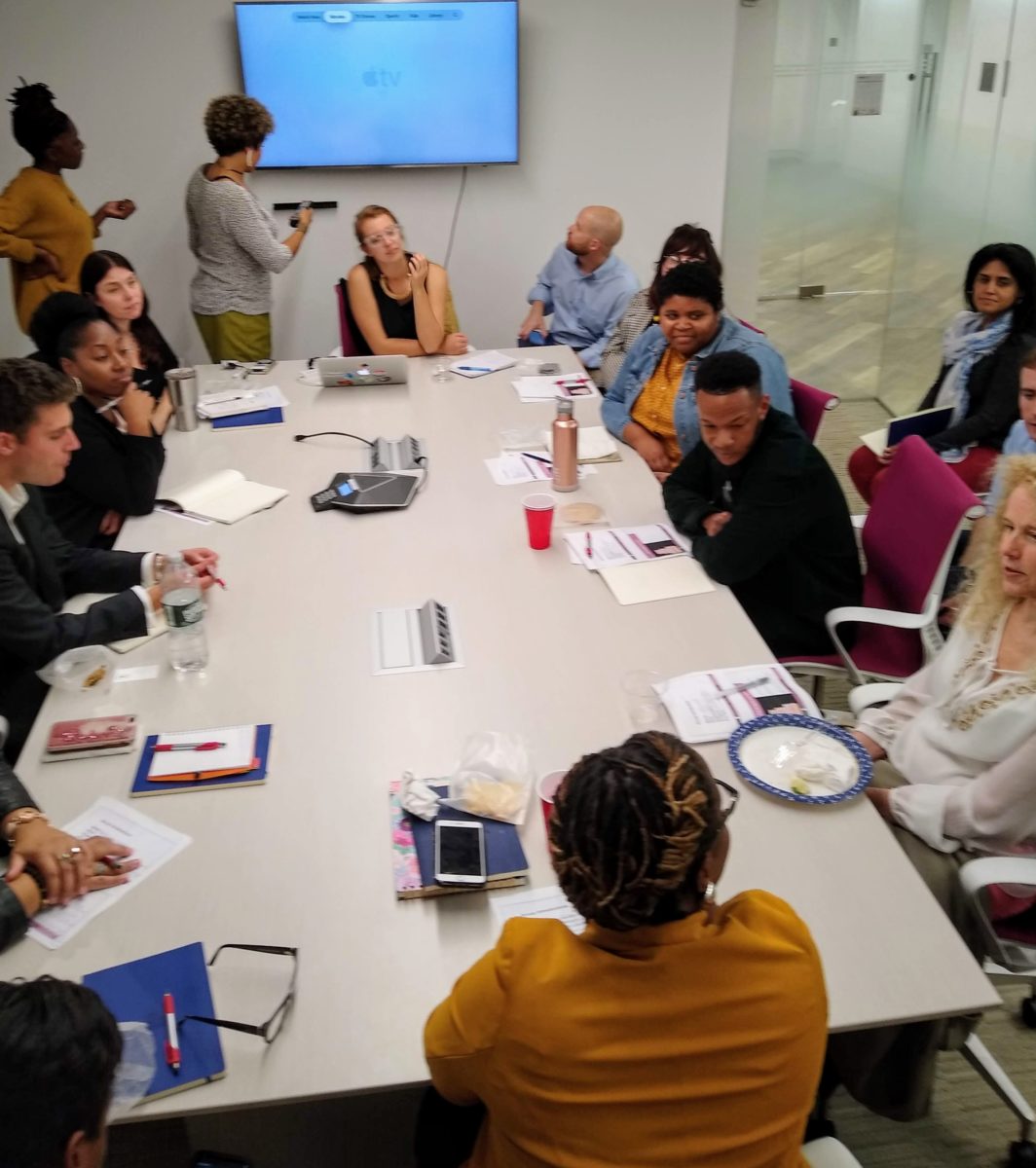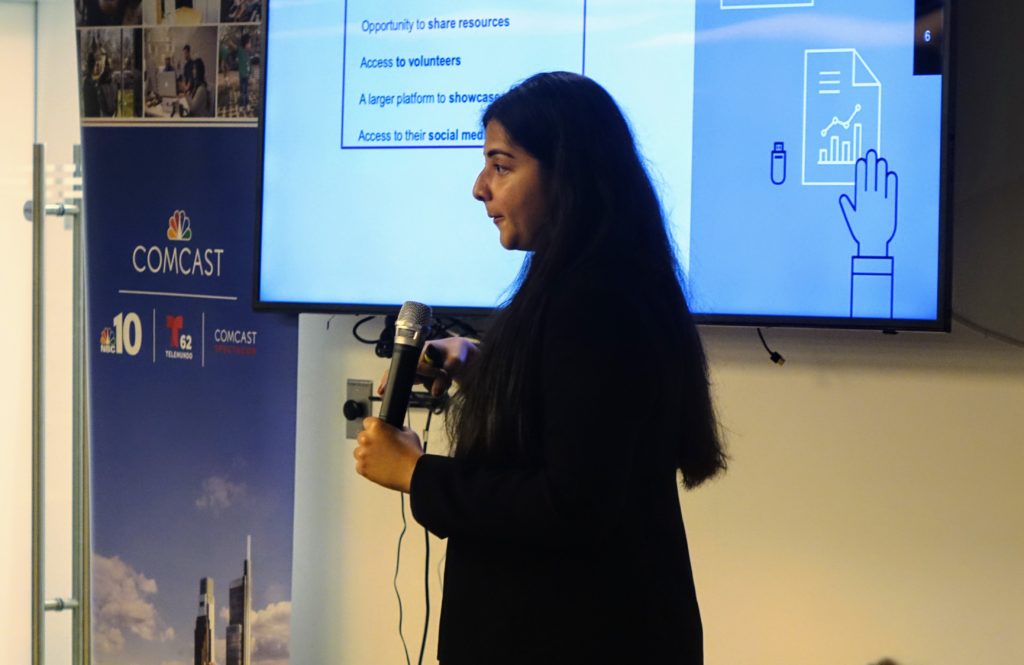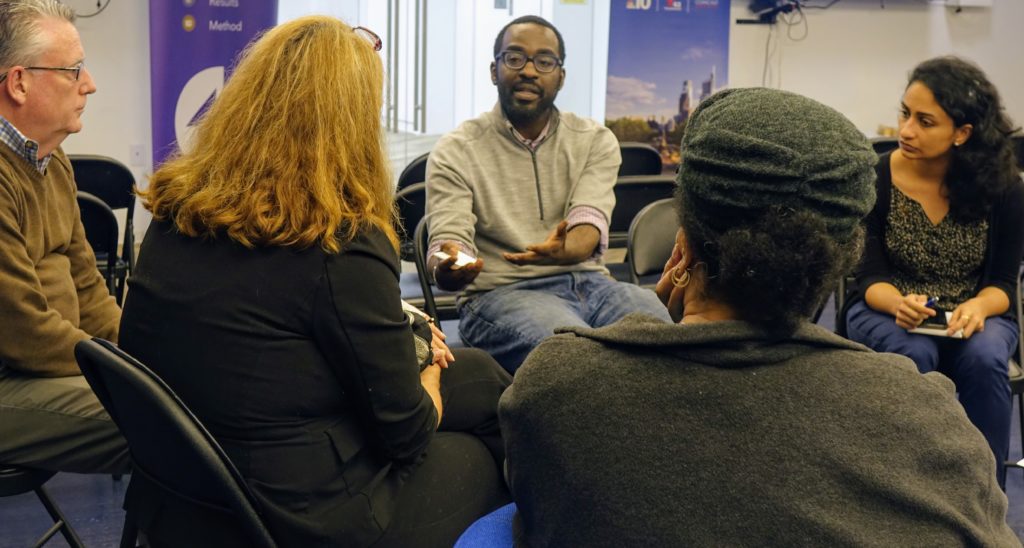Nonprofit pros honed their entrepreneurial skills at the recent Tech in the Commons
 October 18, 2019
Category: Featured, Medium, Purpose
October 18, 2019
Category: Featured, Medium, Purpose
Tech in the Commons, Generocity‘s free reporting and event series on entrepreneurial skills for area nonprofits, offered real world case studies to assist attendees with information to increase their impact, audience, fundraising and organizational efforts.
More than 75 people registered for the event, hosted in partnership with Comcast NBCUniversal and featuring tacos by Darnel’s Cakes.
Generocity editor Sabrina Vourvoulias introduced the evening speakers — Morgan Berman, CEO of MilkCrate; Rajvi Mehta, lead of Philadelphia Chapter of Women in Data and Kahiga Tiagha, founder of The ITEM — all
of whom offered digital tools and personal tips to assist nonprofit leaders.
“We help nonprofits and some municipal programs achieve their missions by making it easier to engage participants and measure that engagement with their own mobile app,” Berman said as she explained her program’s mission to help course correct and turn those numbers into funding.
“We’re all in the nonprofit space one way or another,” she added. “The way it’s supposed to work is funders, like foundations, are supposed to put money in, you’re supposed to do work, and somewhere over here, impact happens. But actually measuring that and getting to that can be really hard. One of the things we realized is that these foundations are putting $66 billion a year into the nonprofit space, yet they don’t know if it’s working. In fact, only 16% of foundations feel like they know if the money that they’re giving to nonprofits is achieving the goal.”
They’re investing in a result and you all are investing your time and energy to achieving your result and it’s very frustrating if you don’t know if you’re getting there,” Berman said.
Mehta’s presentation began with her recalling her own journey as the recently appointed chapter leader of a national nonprofit that is focused on increasing diversity in data carriers.
“Know your industry and the audience,” she advised. “I’ve received multiple nos or people don’t reply to my emails when I’m asking for funding — but I have six or seven organization partners that have sponsored so many of my events. They keep believing and they keep coming back with funding for my events. Those are the kind of relationships that you want to build in the long run.”
“Asking for money is extremely difficult,” Mehta added, “it’s selling your idea and what you have as a product. I used to get super uncomfortable asking for money in that way, and that brings me to my second point, which is having a
clear ask. I assume that if my event needs a food sponsor, then maybe I should have that specific and clear ask [of]
what I’m looking for. Following up, thanking them and letting them know how the event went is extremely important in building those relationships.”
The interactive presentation concluded with Tiagha, a lawyer by training, suggesting combining nonprofit and commercial tactics to raise funds. “Some of the difficulties between going after the foundational money versus private money, and also what lane you choose when you go into the sector, will often determine what access to money you will ultimately have, and frankly, the population [you] serve,” he said.
Each speaker led individual breakout sessions that allowed all to share information on how they’ve tweaked their styles for the nonprofit sector. Afterwards, Twitter user @cgdeltito wrote, “thanks for an incredible evening of learning entrepreneurial skills for nonprofits. Outcomes not Outputs.”
#techcommonsphl #gomilkcratego thanks for an incredible evening of learning entrepreneurial skills for nonprofits. Outcomes not Outputs
— C del Tito (@cgdeltito) October 17, 2019
Project
Tech in the CommonsTrending News













